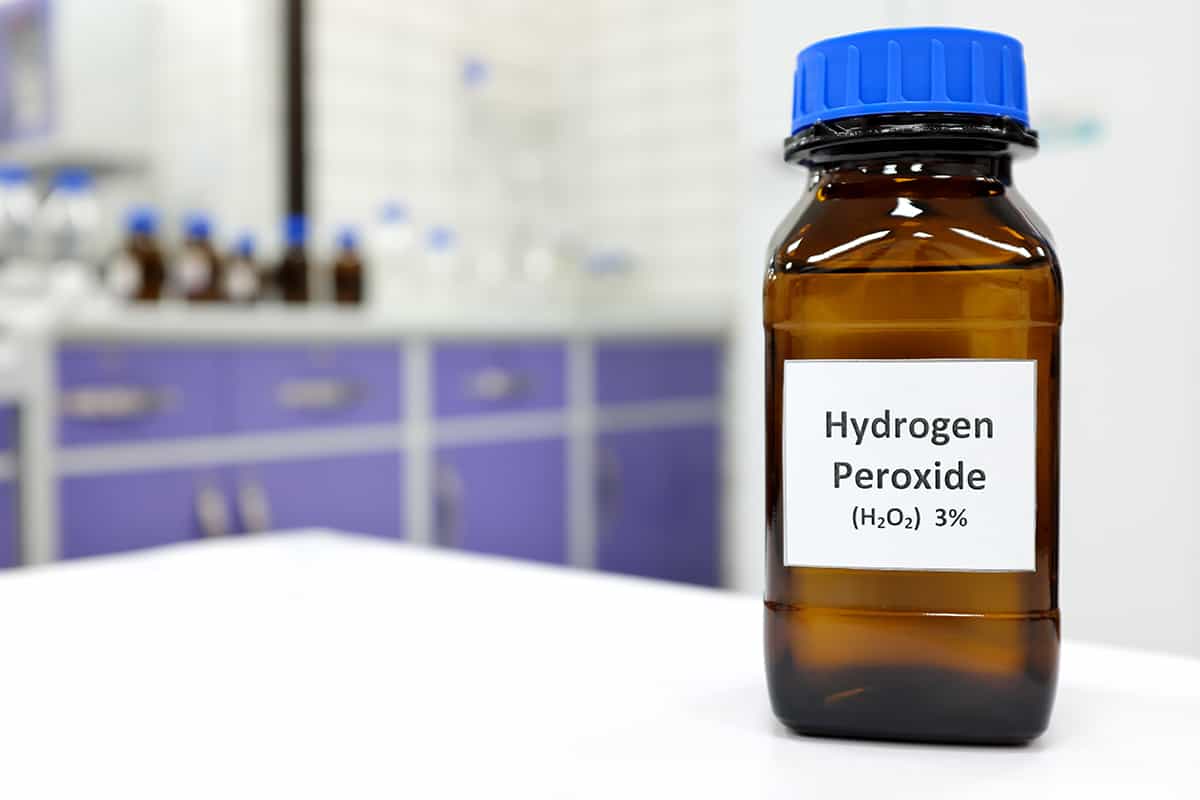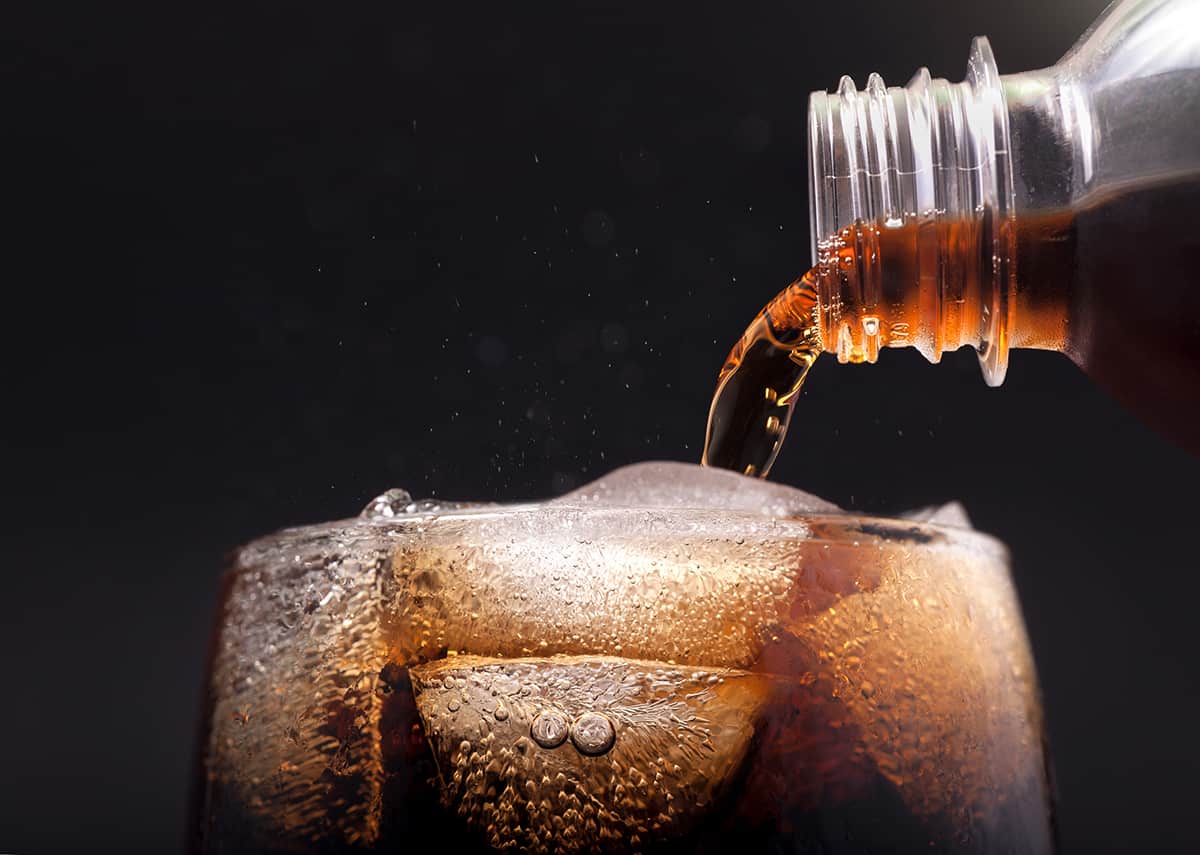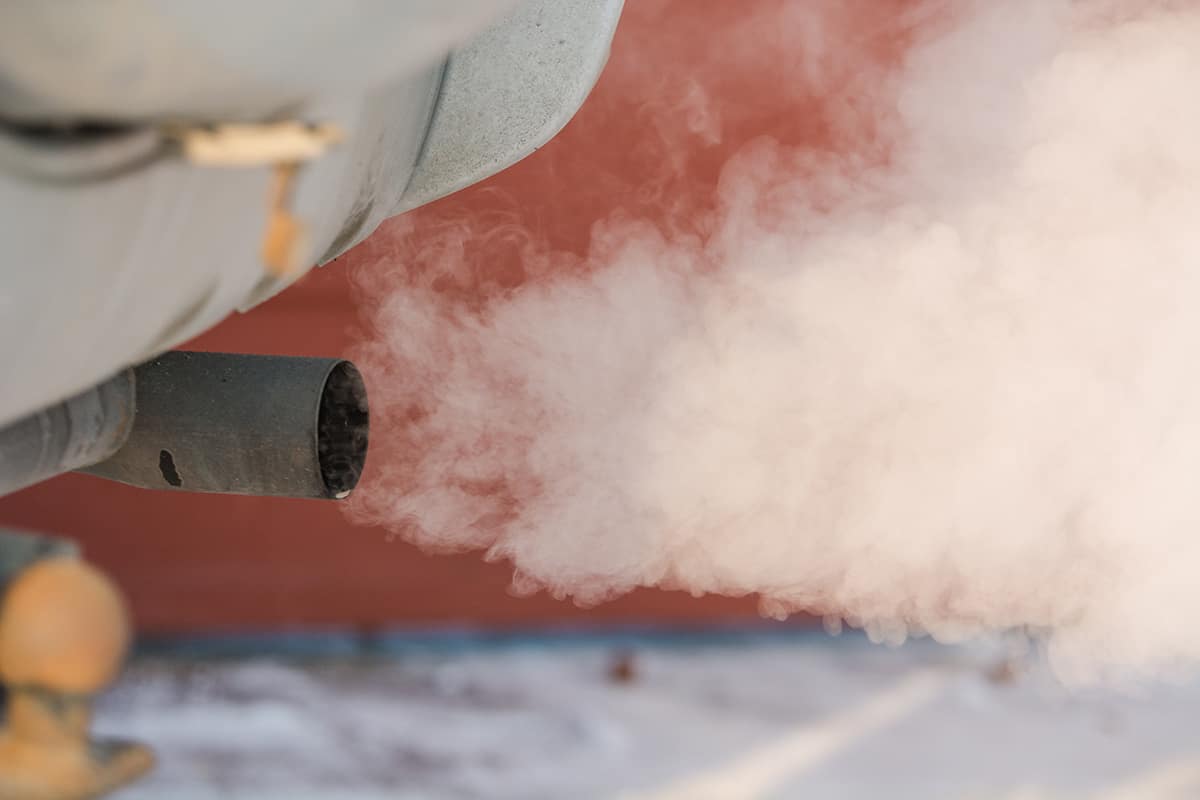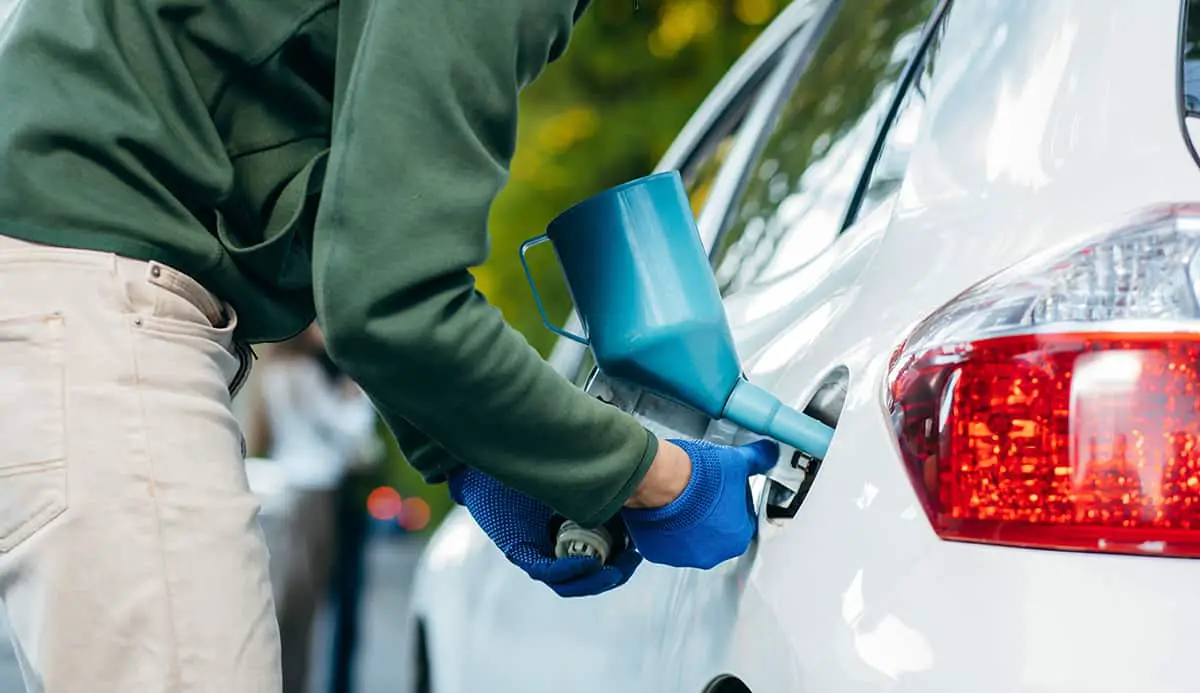A gas tank pretty much tells you everything you should know about it: you put gas in there. You’ve probably read stories of people filling their parent’s car with water or sugar, which is an absolute no-no, but that got me thinking—what’s the absolute worth thing you can put in a gas tank?
There’s no shortage of items that you shouldn’t put in your car’s gas tank, including but certainly not limited to water, sugar, salt, hydrogen peroxide, antifreeze, and brake fluid. Virtually anything that doesn’t belong in the gas tank can be hazardous to the vehicle and the driver.
In this guide, we’ll go over common substances people may think about putting in another person’s car, and how to tell when your car’s gas tank has been tampered with.
Worst Thing to Put in a Gas Tank
This list could go on infinitely. After all, how many different types of manure can I talk about before you get the point? So, for simplicity’s sake, we’ll discuss common substances people may have thought about putting in their gas tank, whether it’s for giggles or for some nefarious purpose.
1. Water
Adding water to a car’s gas tank may seem harmless, but it can cause significant damage to the engine. Water in the fuel tank can make the car accelerate less smoothly, which is dangerous when driving at high speeds.
The danger of water in the gas tank is that it doesn’t cause immediate problems, and the driver may not realize there is a problem until the car engine fails. When water enters the engine, it can cause the engine to seize, which can be costly to repair.
2. Hydrogen peroxide

Adding hydrogen peroxide to a car’s gas tank is a harmful action that must be avoided at all costs. Hydrogen peroxide can make the engine burn too hot, damaging its internal components. When mixed with gasoline, it can increase the burn rate and make the car faster.
However, an overheating engine may cause the car to stop working altogether. Even though hydrogen peroxide can give the car a speed boost, the damage it can cause to the engine is not worth it.
3. Bleach
While bleach may be useful for cleaning around the home, it is not a good idea to put it in your car’s gas tank. At first, you may not notice any problems, but over time, the bleach can cause damage to the car’s engine.
This is because bleach is a strong chemical that can corrode the rubber and metal components of the engine. In addition, since bleach contains a lot of water, it can have similar effects to putting pure water in the gas tank. The engine may begin to run on the bleach, causing the car to lose power and run less smoothly.
4. Salt
Adding salt to a car’s gas tank can cause significant damage to the engine over time. When salt is poured into the tank, it settles on the bottom and can cause corrosion to the tank’s bottom. Additionally, small salt grains can build up inside the fuel pump and filter, leading to blockages that prevent fuel from flowing properly into the engine. This can result in poor engine performance, misfiring, and even engine failure.
The engine can also overheat, which can cause it to completely shut down. While a small amount of salt may not cause significant damage, sustained exposure to salt can lead to major engine problems.
5. Carbonated beverages

Pouring soda, such as Coke, into a car’s gas tank can be extremely damaging to the engine. The high sugar content and other ingredients in soda can create a sludgy mixture when combined with fuel in the gas tank.
The sugar in soda can clog up the fuel filter and impact the engine’s overall performance. While a small amount of soda may not cause noticeable problems, increasing the amount in the fuel tank can lead to potential damage to the engine.
6. Urine
Pouring urine into a car’s gas tank is not a good idea and can cause damage to the engine, although the extent of the damage will depend on the amount of urine added. A small amount of urine is unlikely to cause any harm, while a large amount can be harmful and cause damage to the car’s engine over time.
If you notice anything strange in the gas tank, such as the smell or color, it is important to clean the fuel pipe and filter right away. In case of significant damage, you may need to consult a mechanic. This is because urine is not a suitable substance for fueling a car and can cause damage to the engine in the long term.
7. Brake fluid
Putting brake fluid in a car gas tank is not recommended as it can cause severe damage to the engine. Brake fluid can cause oxygen sensors to degrade and damage rubber parts in the engine, resulting in a chemical smell while driving.
While a small amount of brake fluid may not have any significant effect, adding too much can dilute the fuel and cause the engine to misfire or have difficulty starting. If you suspect that your gas tank is full of brake fluid, you should take your car to a mechanic immediately to have the fuel tank drained.
How to Tell When Someone Put Something in Your Car’s Gas Tank
Many of the signs you see below can also be associated with common car problems, such as a dead battery or even a blown fuse. However, if you’ve ruled those things out and are still experiencing these issues, then there’s a chance that someone has been messing with your car’s gas tank.
1. Open gas cap
If you notice that your gas cap is loose or completely removed, it may be a sign that someone has tampered with your gas tank. An open gas cap could allow foreign substances to enter the tank, leading to poor engine performance or damage.
When someone adds something to your gas tank, they may need to open the gas cap to do so, and they may not have resecured it properly. Additionally, an open gas cap can allow for evaporation of the gasoline, causing a loss of fuel efficiency and potentially causing the Check Engine light to turn on.
2. Hard to start
When a foreign substance is added to your gas tank, it can interfere with the fuel system, making it difficult for the engine to start. This is because the added substance can dilute the gasoline or clog the fuel filter, making it difficult for the engine to receive the right amount of fuel. In some cases, this can cause the engine to misfire or not start at all.
3. Engine misfire
Engine misfires happen when there is a disproportionate mixture of air and fuel in the engine. When a foreign substance is added to the fuel, it can throw the fuel-to-air ratio out of whack, thus leading to consistent misfires. Depending on the amount and type of substance added to the gas tank, the misfire could occur at regular intervals or randomly.
4. Decreased performance
The engine is designed to operate on a specific type of fuel, and any other substance in the tank can disrupt the combustion process. As a result, you may notice a decrease in performance. The engine may not respond as quickly to your acceleration, and you may notice a lack of power when driving.
5. White exhaust smoke

White smoke can be a sign of many things, including an overheating engine and a degraded oxygen sensor. Contaminants in a gas tank can lead to white exhaust smoke in a few ways.
One possibility is that water or other substances that don’t burn well can mix with gasoline and enter the engine. When the engine burns the fuel, these contaminants can cause incomplete combustion, leading to the production of white smoke.
Can You Put Diesel in Your Gas Tank?
It is not recommended to put diesel fuel in a gas (petrol) engine’s fuel tank. Diesel fuel and gasoline have different chemical properties and are designed to be used in different types of engines.
Gasoline engines are designed to ignite a mixture of fuel and air using a spark from the spark plug, while diesel engines ignite fuel using high temperature and pressure in the engine’s combustion chamber. Diesel fuel is not as volatile as gasoline and it won’t ignite properly in a gasoline engine, which can lead to poor engine performance, damage to the fuel system, and in some cases, complete engine failure.
If you accidentally put diesel fuel in a gas engine’s fuel tank, it’s important to not start the engine, as this can cause significant damage. Instead, the fuel tank and fuel system should be drained completely and the fuel filters should be replaced before adding the correct type of fuel. It’s best to consult a mechanic or a professional to properly handle and dispose of the contaminated fuel.







